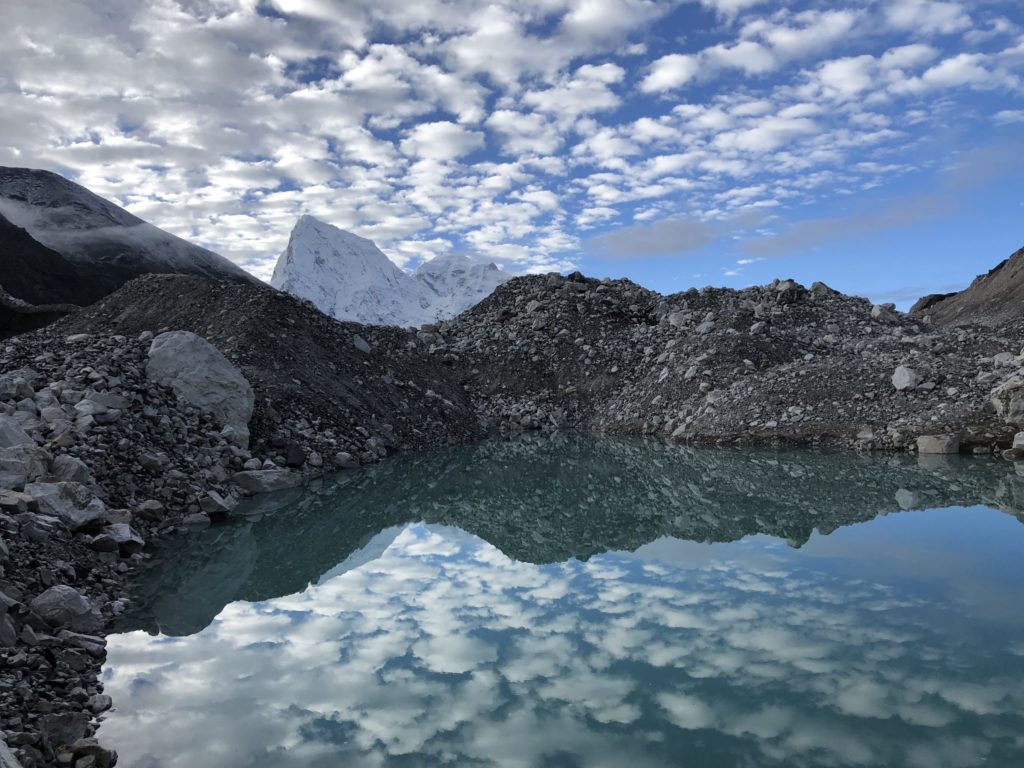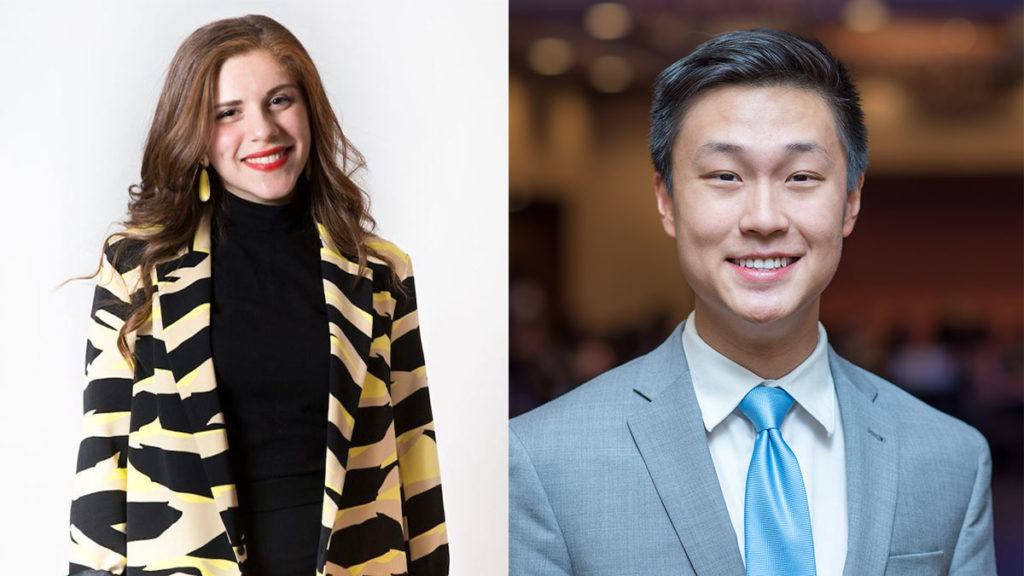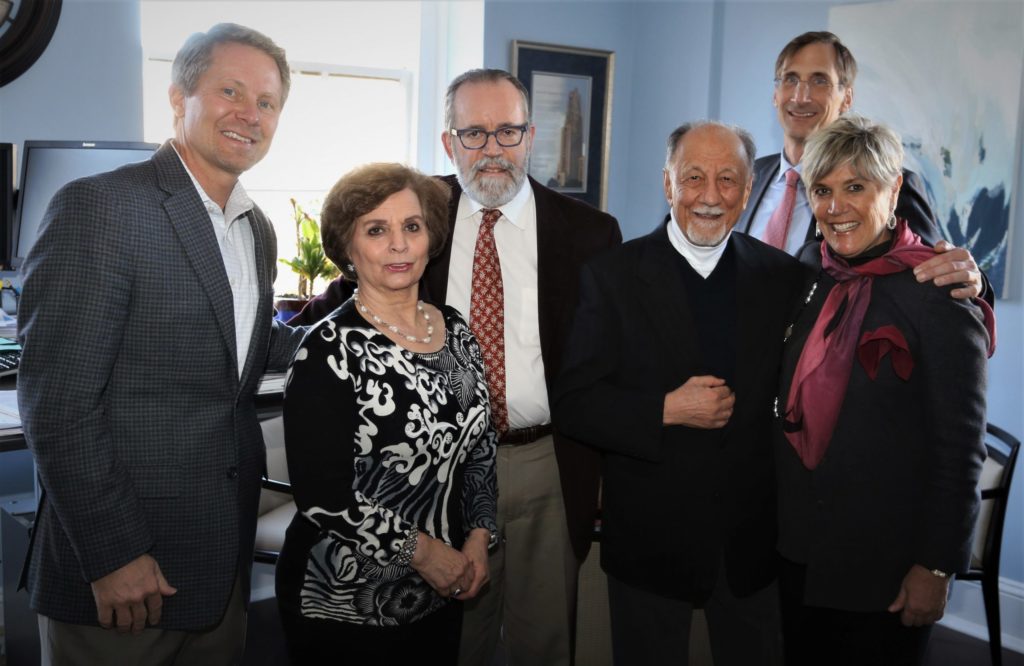
Anna Kirey ’15 M.A. understands the value of regional studies. She has had a truly global education, studying in Kyrgyzstan, Latvia, Costa Rica, Sweden, the U.S. and her home country, Ukraine.
Kirey was born in Russia but grew up in Ukraine. She spent much of her childhood going back and forth to Russia, where her grandmother lived. In 1996 at the age of 16, Kirey made the even longer journey to Conewango Valley, New York, where she completed high school as part of the Freedom Support Act Future Leaders Exchange, run by the U.S. State Department.
“It was a big deal thing for the Ukraine at that time but also for me as a person,” she said. Ukraine had gained independence from the Soviet Union just five years earlier, after 70 years of isolation from the West.
Before enrolling at the University of North Carolina at Chapel Hill, Kirey received an undergraduate degree in journalism from the American University in Central Asia in Kyrgyzstan and her first master’s in gender and peace building from the University for Peace of the United Nations in Costa Rica.
It was in Kyrgyzstan that Kirey first became involved with LGBTQI activism, her personal passion, which has shaped her career in the field of human rights.
“I was on student government, and I just saw a lot of homophobia at the university, but I was able to respond to that,” she said.
Kirey joined the Amnesty International group on campus, and in 2004, she co-founded an independent LGBT group named Labrys, the first such group in Kyrgyzstan.
These experiences inspired her to write her UNC master’s thesis on LGBT activism in Kyrgyzstan as part of the interdisciplinary master’s program in Russian, Eurasian and East European Studies (REEES) offered by the Center for Slavic, Eurasian and East European Studies (CSEEES). Kirey’s was the last cohort to graduate from the CSEEES master’s program — REEES is now a concentration of the UNC Curriculum in Global Studies master’s program.
Pursuing her interests in gender and sexuality studies and the region was important to Kirey. “I was able to [study] both at UNC because the nature of [REEES] was very much interdisciplinary.”
“It is important to understand the dynamics of the region… [to know] how different policies are developing, how political systems and external influences affect each country’s development, socially, politically, culturally even,” Kirey explained. “It is a region I would also say is returning to quite an authoritarian regime unfortunately.”
While at UNC, Kirey received the Center for Global Initiative’s C.V. Starr Fellowship. The fellowship, which provides funds to students looking to undertake an independent internationally oriented experience, is offered at 80 universities, liberal arts colleges and graduate and professional schools worldwide.
As a C.V. Starr fellow, Kirey traveled to Croatia and Serbia in 2011 to engage with LGBTQI groups and participated in their pride events. “I really got closer to the activists, and I understood their context so much better,” Kirey said.
In 2012, Kirey received the prestigious Human Rights Watch Alan R. and Barbara D. Finberg Fellowship. It was the opportunity of a lifetime for Kirey, who was one of more than 800 applicants. As a fellow, Kirey researched and worked on LGBT issues specifically for the fellowship, focusing on Kyrgyzstan, Ukraine and Russia.
Kirey said she could not have gotten the competitive fellowship without the advice and assistance of faculty and staff in CSEEES.
“There was so much support for professional development that came from the [CSEEES] staff. It felt more like a family,” Kirey said. “I loved being able to communicate with professors not only about classwork but about how to use the knowledge we were gaining in class further on in life.”
She also credited support she received from University Career Services for her professional success.
“One of the reasons I got the Human Rights Watch fellowship is because I went to the career center and we went through every single possible question, so I was really well prepared,” she said. “I really appreciated being able to do that.”
Kirey is now a senior program officer at Open Society Foundations, a grant-making network, in New York City. Her responsibility is to process grants for trans* and intersex activism with a focus on the Eurasian region and eastern and southern Africa.
The classes she took at UNC, including a medical anthropology class, still benefit her when working on projects like this, as do the experiences she gained during her fellowships.
Although Kirey cares deeply about the work she does, she also misses the environment at UNC.
“At the University you are able to experience and discuss all these different ideas,” she said. “I felt like every class gave me a new perspective and a new idea about political processes and my own activism as well. It was just this world of ideas.”
Kirey advises anyone looking into human rights advocacy to take advantage of centers like CSEEES and get involved through volunteering and campus activities.
“Be engaged with different human rights clubs, and if you’re in global studies, learn about the world, because a lot of times human rights jobs are about…understanding the politics and international human rights institutions [as well as] the UN and regional institutions,” she said.
“There’s a lot going on — be engaged with that.”




